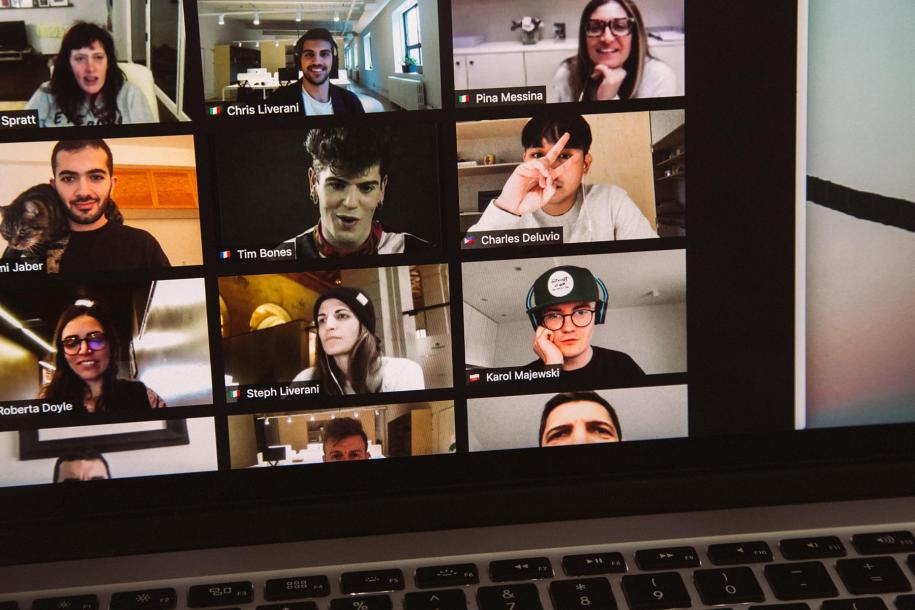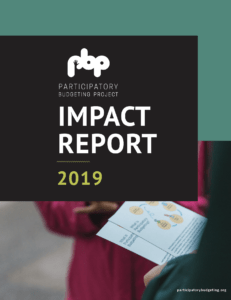Kettering and NIFI: Developing Materials for Deliberation
 The Kettering Foundation researches and develops issue guides, and the National Issues Forums Institute (NIF) shares the materials across the country along with the deliberative practices on which they are based.
The Kettering Foundation researches and develops issue guides, and the National Issues Forums Institute (NIF) shares the materials across the country along with the deliberative practices on which they are based.
How Kettering and NIFI think about developing materials that support public deliberation is freely available in two publications: Naming and Framing Difficult Issues to Make Sound Decisions, which outlines the conceptual foundations of this approach, and Developing Materials for Deliberative Forums, which is aimed at people in communities who might want to do this work themselves, in their own contexts on their own issues. When KF and NIFI work on national materials, we use the same approach. There are many ways to do this, and the more one does it the more readily it comes. In this way, this work is a “practice,” learned and improved upon by doing, yet accessible to all. It does not take experts. (Another resource, a little more schematic, is this two-page overview.)
This is not necessarily the best way to develop such materials, but it is the one that we have developed and used over decades. Other innovations are most welcome, and we are always interested to hear about them.
What we mean by “public deliberation” is simple: people deciding together about how they should address a shared problem by weighing options for action against the things they hold valuable. It is particularly useful, and some might even say it is needed, on certain kinds of problems, including when the cause of the problem is in dispute, people from all walks of life will need to act, there is no objectively correct solution, and any potential path forward brings with it drawbacks that affect things that are held deeply valuable. Some call such problems “wicked.” The main idea is that they don’t have a correct solution, but the problems are pressing, so we must still decide how to move forward in the absence of complete agreement. NIF issue guides are designed to be a support to deliberation by people in communities on a range of these kinds of issues. People deliberate all the time in their personal and professional lives. It is not a new skill that needs to be learned. The NIF issue guides are simply designed to prompt the process. (Some people use them for educational purposes, but their main intended use is to support direction-setting that leads to public decision-making.)
The challenge for anyone trying to develop a document that supports people deliberating on such a problem is to 1) describe the problem in such a way that it is universally recognized as a problem that merits discussion and 2) present options for action that lay bare the tensions between the things that we might do. The first item is called naming, and the second framing.
All of this work starts with research. It is not work suited to just one or two researchers who go off and write—it is collective work aimed to be useful to collectivities of people. In terms of “desk” research, the chief areas of inquiry are: What arguments are being made about this issue? By whom? How do they differ? What solutions are being proposed? The public research is the most important aspect of developing these materials.
This public research starts with gathering concerns of people. This is usually done in small groups, as people share their concerns about a topic. The name of the issue is not yet known—it will develop and emerge iteratively throughout the process. We are trying to learn two things: What is the question that people feel we must grapple with? How does this issue relate to the fundamental things that everyone holds valuable, but in differing degree? By talking about their concerns, people lay bare these things. We typically try to have broad-based concern gathering sessions, eliciting input from many groups, across difference. The broader the better.
Once there is a good, broad set of concerns (usually hundreds), we begin to “cluster” them according to things that are held deeply valuable that appear to be driving them. They typically will readily narrow down to a handful of main driving concerns such as collective safety, equity and being treated fairly, having freedom to act, having control over one’s future, and so forth. It is useful to get down to three or four main groupings. These clusters will become the options of the resulting issue framework, and three or four options is about as many as one can get through in one discussion.
What emerges from this clustering work is a name for the issue and the beginnings of a framework of options (each a major direction for addressing the problem). To give a sense of specificity to the options, it is useful to have examples of specific actions that each option suggests. The result of all this work is the “grid” format that you can see at the back of most NIF issue guides: a description of the problem, three options for action, each with a set of actions. Each of these options will have a trade off—the downside will be unpalatable, or it will pull against one of the other options, or both.
At this point, we develop a draft of such a framework and test it by holding deliberative forums with groups of people. We are looking for how well it sparks deliberation.
We have learned that a useful framework will:
- Name the problem in such a way that people immediately respond
- Include a range of options that are in tension with one another
- Give voice to marginal and sometimes unwelcome views
- Clearly and fairly show the downsides of any suggested course of action
- Shake up the dominant left/right polarized discourse
- Often leave people stewing as they consider ideas they may not have encountered
In my own experience in doing this work, this testing almost always results in improvements and sometimes major revisions. Sometimes an option needs a complete rework. Sometimes the name is clearly wrong. For instance, once we thought we were framing an issue related to “campaign finance,” and people in concern gathering sessions literally laughed at how narrowly that was drawn and insisted that the problem was almost the entire political system.
One of the challenges of doing this work is that it works best if one approaches it with openness and a willingness to alter course based on what is learned. It makes it difficult to create hard-and-fast timelines and to provide early specificity.
Once the overall framework is working, we develop a full-length issue guide. These are all reviewed anonymously by people who are familiar with the topic at hand before publication. At this point, we are looking for balance between major viewpoints and major gaps or errors.
You can find the original version of this announcement on the Kettering Foundation site at www.kettering.org/blogs/kf-and-nifi-developing-materials-deliberation.

 The National Issues Forums Institute (NIFI) is now accepting applications for the Elizabeth “Libby” Kingseed Teaching with Deliberation Memorial Award at this time. A fund established to commemorate and in memory of Libby Kingseed.
The National Issues Forums Institute (NIFI) is now accepting applications for the Elizabeth “Libby” Kingseed Teaching with Deliberation Memorial Award at this time. A fund established to commemorate and in memory of Libby Kingseed. Libby Kingseed was a program officer, and archivist at the Kettering Foundation. Libby was a passionate leader of the foundation’s K-12 civic education research. She worked closely with teachers using National Issues Forums in the classroom. Libby recognized the need for civic education to be included in the education of children in order to help them understand how to be active, engaged citizens in the future.
Libby Kingseed was a program officer, and archivist at the Kettering Foundation. Libby was a passionate leader of the foundation’s K-12 civic education research. She worked closely with teachers using National Issues Forums in the classroom. Libby recognized the need for civic education to be included in the education of children in order to help them understand how to be active, engaged citizens in the future. For the seventh time since 2013, the Online Facilitation Unconference (OFU) will take place this October 19-25, once again alongside and as part of IAF’s International Facilitation Week.
For the seventh time since 2013, the Online Facilitation Unconference (OFU) will take place this October 19-25, once again alongside and as part of IAF’s International Facilitation Week. The Bridge Alliance and Bridge Alliance Education Fund are excited to announce the addition of Reverend F. Willis Johnson to its leadership team as Vice President of Partnerships and Programming. He rose to national prominence for his role in healing the Ferguson, MO community after the death of Michael Brown.
The Bridge Alliance and Bridge Alliance Education Fund are excited to announce the addition of Reverend F. Willis Johnson to its leadership team as Vice President of Partnerships and Programming. He rose to national prominence for his role in healing the Ferguson, MO community after the death of Michael Brown.
 “We cannot simply retrofit our in-person reality to the online space. But we can stay grounded in our shared purpose, and design accordingly.”
“We cannot simply retrofit our in-person reality to the online space. But we can stay grounded in our shared purpose, and design accordingly.” We designed a new exercise to use collective reflection as a way to observe this moment of dynamism and change more deeply and clearly. We invited the participants to reflect on the negative patterns exacerbated by the transition to virtual spaces, as well as the patterns that are serving their community well in this stressful moment.
We designed a new exercise to use collective reflection as a way to observe this moment of dynamism and change more deeply and clearly. We invited the participants to reflect on the negative patterns exacerbated by the transition to virtual spaces, as well as the patterns that are serving their community well in this stressful moment. The Mathews Center will host its annual Civic Institute on August 21st, 2020
The Mathews Center will host its annual Civic Institute on August 21st, 2020 2019 marked a monumental year for PBP. Our organization turned 10 years old, helped launch or continue over 170 PB processes, and successfully transitioned our leadership to a national Black-led organization committed to equity.
2019 marked a monumental year for PBP. Our organization turned 10 years old, helped launch or continue over 170 PB processes, and successfully transitioned our leadership to a national Black-led organization committed to equity.
 The Kettering Foundation researches and develops issue guides, and the National Issues Forums Institute (NIF) shares the materials across the country along with the deliberative practices on which they are based.
The Kettering Foundation researches and develops issue guides, and the National Issues Forums Institute (NIF) shares the materials across the country along with the deliberative practices on which they are based. Amani came to study in the United States from a middle-eastern country. She was on a government scholarship and had to meet specific academic benchmarks to keep it. Her freshman year consisted primarily of general education courses plus freshman English. Amani did well in her courses except for the parts that were discussion-based.
Amani came to study in the United States from a middle-eastern country. She was on a government scholarship and had to meet specific academic benchmarks to keep it. Her freshman year consisted primarily of general education courses plus freshman English. Amani did well in her courses except for the parts that were discussion-based.